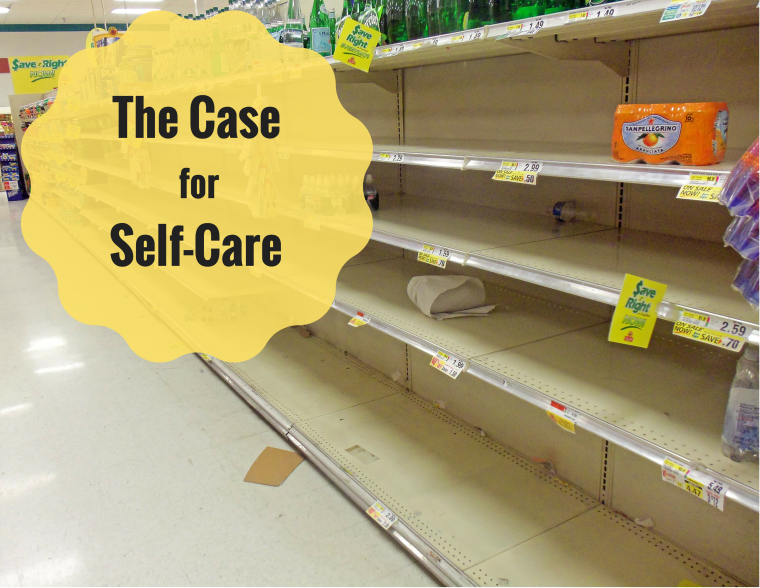One of the main reasons we don’t practice healthy self-care is because it just feels wrong. It seems selfish.
Somehow we’ve internalized the belief that the ideal person is one who has no discernible needs. We are averse to asking for help. We view taking time to care for our souls as somehow wrong or self-centered.

Self-Care is Not Selfish
But in the Bible, healthy self-care is seen as normal and expected. Philippians 2:4, in a passage about being unselfish, says, “Each of you should look not only to your own interests, but also to the interests of others.” The verse does not say, “Don’t look out for your own interests at all, but only for the interests of others.” The author assumes a certain amount of self-interest, even as he urges us to go beyond it.
In Ephesians 5:28-29, the apostle Paul tells men to love their wives as their own bodies. “After all,” he says, “No one ever hated his own body, but he feeds and cares for it.” Again, the passage assumes a level of healthy self-care. The Bible never glorifies being overly harsh toward yourself.
Jesus himself practiced self-care. Luke 5:15-16 tells us that “Jesus often withdrew to lonely places and prayed.” When crowds demanded Jesus’ time and energy, he deliberately carved out space to care for his soul.
The second commandment, “Love your neighbor as yourself” (Matthew 22:34-40), assumes self-care.
Mike Mason, in his book “Practicing the Presence of People,” expands on this point:
Jesus’ second great commandment implies that we will love others only to the extent that we love ourselves. The command might be better understood by putting the words ‘You will’ in front of it: ‘You will love your neighbor as yourself.’ That is, the feelings you have toward yourself will inevitably be projected upon others… It is a natural law. You will not and cannot treat others any better than you treat yourself.
Self-Care Involves Self-Sacrifice
This doesn’t rule out self-sacrifice. Taking care of ourselves can mean self-denial and self-sacrifice. Jesus tells us to deny ourselves:
If anyone would come after me, he must deny himself and take up his cross daily and follow me. For whoever wants to save his life will lose it, but whoever loses his life for me will save it. What good is it for a man to gain the whole world, and yet lose or forfeit his very self? (Luke 9:23-25)
The Bible doesn’t view healthy love for self and love for others as opposites. They’re two sides of the same coin. If we do what is really best for ourselves, then we will love others sacrificially. If we want to do what is really most loving for others, then we will take good care of ourselves.
We’ve all experienced the joy of giving to others. That self-giving is not only good for others, it’s good for our own souls. It is not good for us to become self-centered, to focus solely on our own needs and wants and become blind to the needs of others.
If we don’t practice good self-care, we become like the store that’s open 24/7 and never re-stocks the shelves. We become depleted. We have nothing to offer. That’s not good for ourselves or for anyone else.
What is truly best for us is reasonable self-care, with self-sacrifice as God leads.
So start now. Take some time out of your day to truly refresh your soul. Listen to music, go for a walk, meditate on a passage of Scripture. Re-stock your shelves. Then go out and give of yourself with joy and passion and energy.
Self-care is not selfish. Healthy self-care is life-giving.
This post is third in a series on Self-Care. For Part 1, “The Importance of Self-Care,” go here. For Part 2, “Self-Care and the Unexpected,” click here.
Question: What do you think? Does it help you to think of healthy love for self and love for others as two sides of the same coin? You can leave a comment by clicking here.

Please note: I reserve the right to delete comments that are offensive or off-topic.